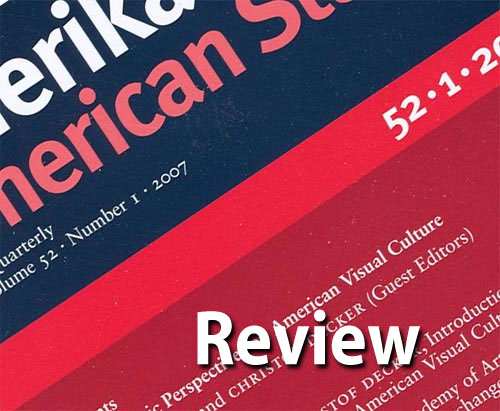Jens Kabisch, Innocent Nation: Barack Obama und die Politik der Authentizität (Wien: Turia and Kant, 2013), 381 pp.
Amerikastudien/ American Studies, 61.4
In Innocent Nation, Jens Kabisch examines how President Barack Obama’s quest for “authenticity” has influenced American politics, while also shedding light on the country’s cultural history of what he regards as the longstanding virtue of authenticity in U.S. society. Regarding authenticity as a “dispositive” that revolves around such characteristics as honesty, truthfulness, and uniqueness, Kabisch argues that it was especially President Obama who rekindled the old topos of authenticity and made it the center piece of his political program as a candidate and as President.
According to Kabisch, the struggle against the “inauthentic” and the evocation of “true” authenticity is as old as the American nation itself and entered the country’s political discourse in the Early Republic. During the presidential election of 1824, for instance, Andrew Jackson accused his opponent John Quincy Adams of being an aristocratic elitist, who did not care for the welfare of the common man. This denunciation of what many Americans deemed a form of artificiality that smacked of corrupt European noblemen echoed the political rhetoric of the American Revolution and has been part of U.S. political discourse throughout the nineteenth and twentieth centuries. Evocations of the authentic, however, were highly ambiguous and were claimed by many different groups, including socialists, conservatives, and neoliberal capitalists.
But it was especially at the turn of the twenty-first century, Kabisch argues, that the discourse of the authentic became particularly powerful. Due to a combination of a number of developments, including changes in America’s consumer society, where “authenticity” began to trump quality, and the impact of 9/11, whose political aftermath called into question the sincerity and integrity of President George W. Bush, a new “politics of truthfulness” emerged after 2001. First focusing on the election of 2008, Kabisch examines which political and ideological premises undergirded Barack Obama’s uses of this new popularity of authenticity. In subsequent chapters, Kabisch analyzes the ways in which President Obama used the topos of authenticity to legitimize his administration, while also shedding light on its uses in America’s “war on terror” between 2000 and 2010.
Kabisch’s phenomenological descriptions of America’s political culture of authenticity and its intellectual origins make for a fascinating read, and the focus on President Obama—in particular on his autobiographies and political statements as well as his body as text—is well chosen. However, even though Kabisch explains early on that it was not his aim to write a general history of authenticity in U.S. politics, one would have wished to learn more about the ways in which this particular idea has taken hold among other politicians as well as activists in the twenty-first century. For example, a more thorough analysis of how the Tea Party Movement has used notions of authenticity to denounce Obama’s “new sincerity” would have allowed readers to learn more about the ambiguities of “authenticity” in contemporary America. However, these quibbles aside, Innocent Nation provides important insights into the cultural dimensions of American politics and should be of interest to cultural studies scholars and political scientists alike.
Simon Wendt (Frankfurt)


